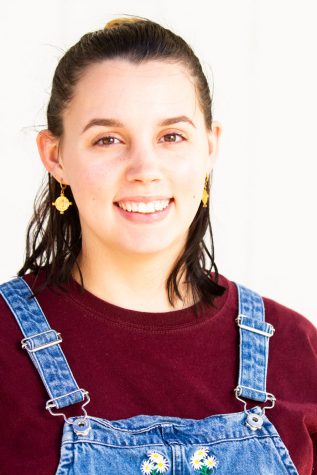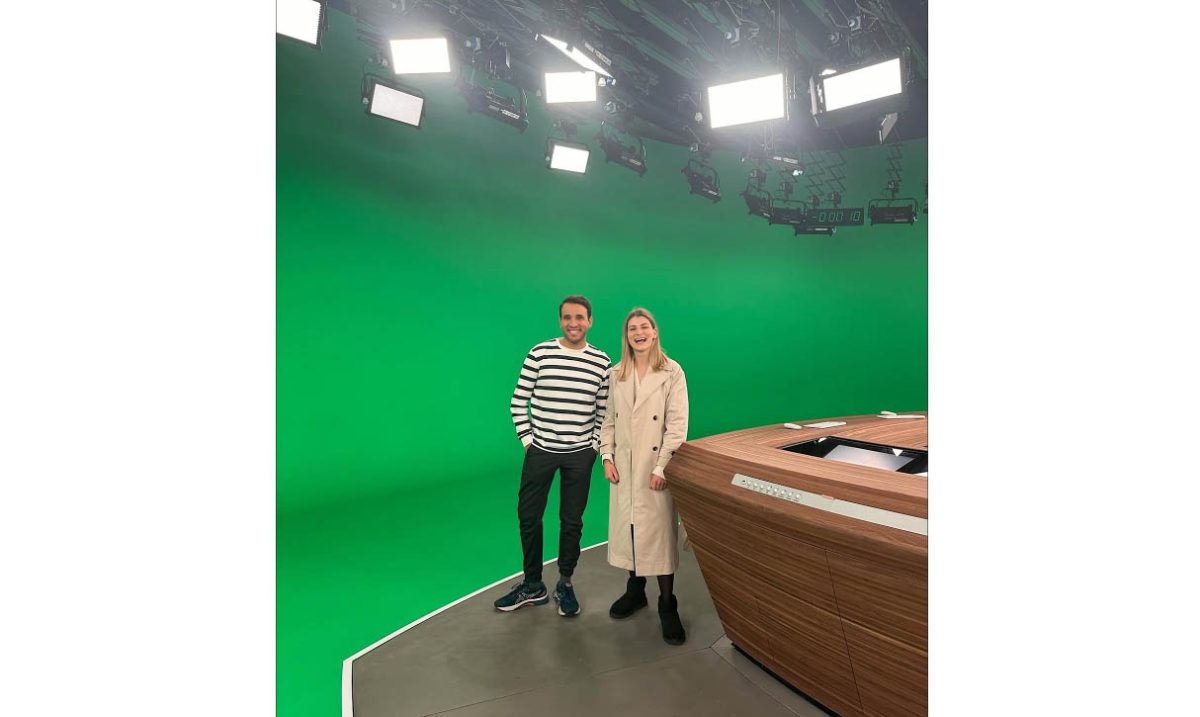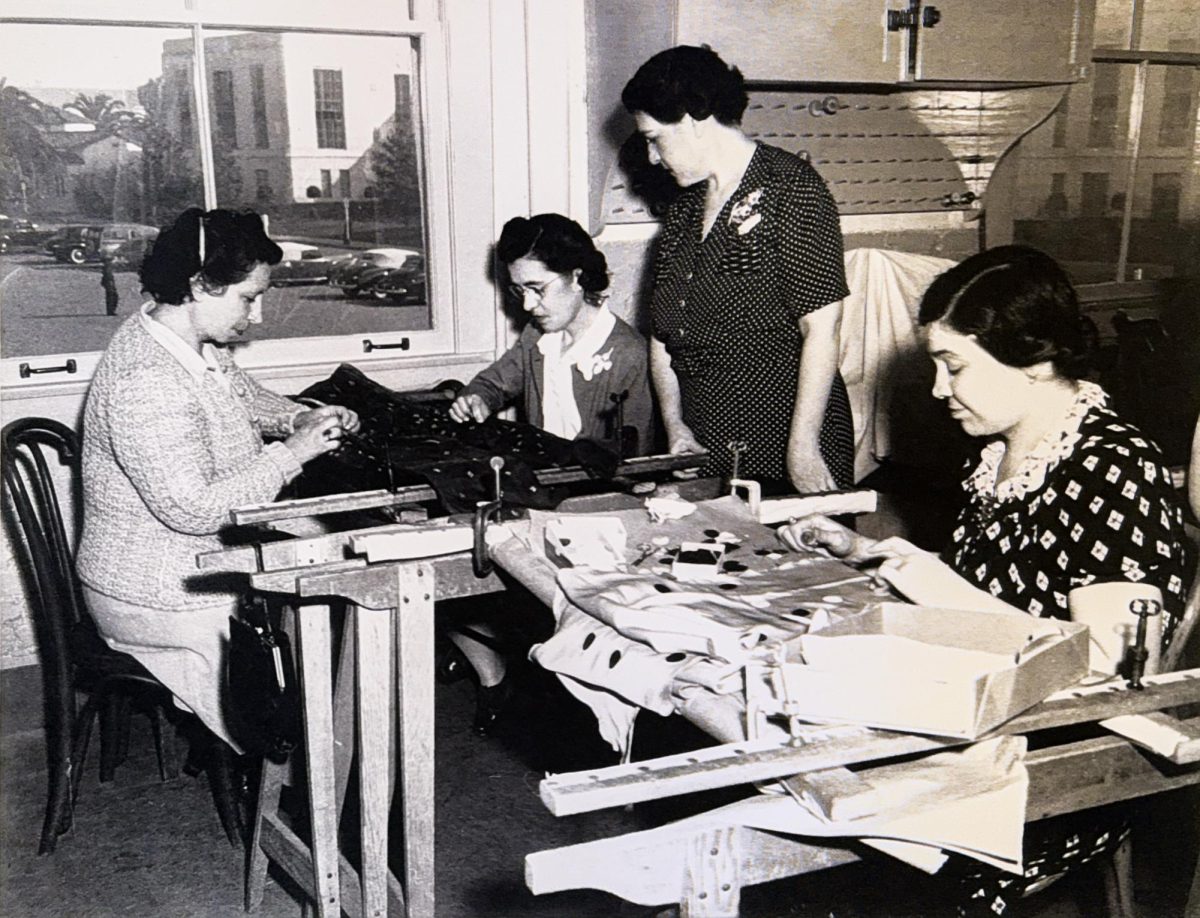Your attempts to flatter me are futile

Around the time that I turned 12, I noticed that men were looking at me differently. I was no longer just a girl in their eyes, no longer a kid on her way to school. I was thrust into being a woman in a way that I was unprepared and unwilling to be.
I don’t enjoy having this role thrust upon me, and I especially don’t enjoy it in my field of work.
It shouldn’t be a big ask to want at least a base level of respect, especially in your career. It shouldn’t be something that women have to talk about, time and time again. And yet, it’s still our reality, whether we like it or not.
The field of journalism isn’t the one mystical exception to this, and it impedes on our ability to work.
Each career will bring its own set of challenges, especially as a woman. Co-workers will overstep the line between friendly and flirty, you will be judged for your appearance and your attire, and there will inevitably be times when you aren’t taken seriously.
I’ve attended receptions where men twice my age have complimented me on my looks. I’ve been talked over and pushed aside more times than I can count, and I’m more used to condescending tones of voice than any other kind.
There’s also the fun little idea that women journalists will be less likely to report information if our sources talk to us with a certain tone of voice and a few choice words.
Women aren’t inherently mild-mannered and ready to buckle at the knees when receiving male attention, and we’re certainly not going to give up on our ethics and abilities because you tell us we’re pretty.
We don’t need you to text us incessantly after getting our number for professional reasons.
We don’t need you to eye us while we’re trying to conduct an interview.
We need to do our work, and we want to do it well.
Unwanted advances de-legitimize my work

After stuffing all my belongings and camera gear in my car last August, I drove from Nashua, New Hampshire to Santa Barbara, California.
I enrolled at City College, signed up for the student newspaper, and a career in photojournalism became a very real option— a massive upgrade from my dead-end restaurant and bakery jobs. As thrilling as it was rolling silverware into napkins for hours, I was itching for work with a deeper meaning.
Photojournalism was my ticket out.
I was photographing a City College football practice for a story being written on a star player when I heard a “wolf whistle” directed my way from one of his teammates. The whole practice, I’d been dodging stares and ignoring winks, but at that moment I truly felt my work being completely disregarded.
I wanted to scream, tell him he was a jerk and a creep, but I just pretended I didn’t hear it.
Next, I was photographing the largest adoptable animal event on the West Coast, “Wags n Whiskers.” The event was going great: an animal had already been adopted, and the Santa Barbara Fire Department had a dunk tank. For a $5 donation, anyone could try to dunk a firefighter. I got some decent shots of them splashing into the dunk tank, and then asked for everyone’s names.
Instead of giving me the information I needed for my caption, one of the firefighters started flirting with me.
I’m in the middle of trying to help animals find homes but this guy, who was old enough to be my father, wanted my number. I wanted to run away “Scooby-Doo style,” where your feet move so fast you float in the air for a second before you get going.
It wasn’t about me, though. I was there for the animals. I laughed it off and pressed him for the information I needed.
With every unwanted advance, I felt like the legitimacy of my work was chipping away. However, I know how important photojournalism is for society to progress, so it only pushes me to work even harder. I just hope future female journalist don’t have to fight for basic respect.
Being taken less seriously as a woman journalist only fuels me to be better

As a woman in an ambitious field, you get used to people dismissing you or taking you less seriously than your male counterparts.
When I began reporting with The Channels, I was excited to take the first steps in pursuit of my career as a journalist.
I approached interviews with ambition and optimism, armed with a notebook, a pencil and a mind hungry for answers.
Throughout my time reporting, I became aware of a pattern amongst the other women that I worked with— either being harassed or dismissed by their sources.
When I approached the former Superintendent-President Anthony Beebe last month, for example, I asked him why he hadn’t wanted to talk to The Channels about his retirement. He claimed The Channel’s reporting hasn’t always been accurate, and when I replied that we strive for accuracy he laughed at me. When I was confused and I asked him to explain, he told me “you don’t need to understand.”
Would I get that response if I wasn’t a young woman reporter? Probably not.
Despite the backhanded nature of the comment, it fueled me to work harder. Being dismissed by the top administrator of the college who prided himself on “representing the students of City College,” forced me to take the extra step to shine a light on the truth.
I wanted to be a reporter whose reputation and ability to find the truth outweighed any expectations someone might have about me being a woman.











